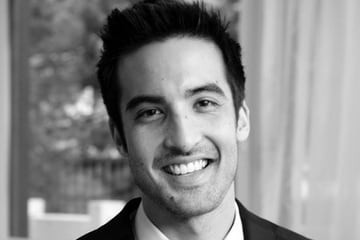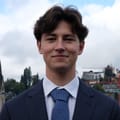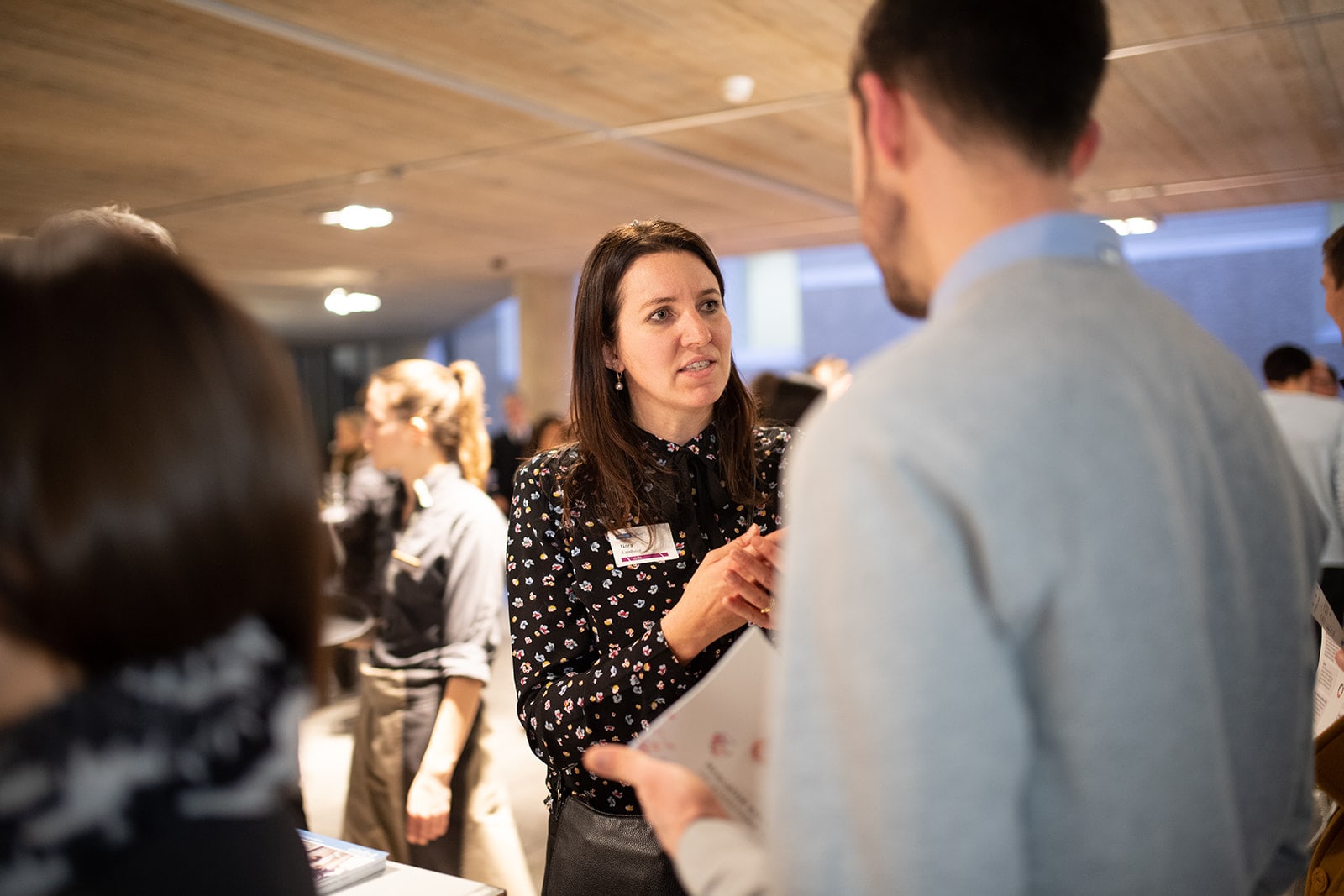An insight into the financial dynamics of WHO with Saran Thierwächter
Saran Thierwächter is a Finance Officer at the World Health Organisation (WHO). At the end of last year, he discussed his experiences and career in an interview with Emily Siebeneich and Romain Bachmann.

Blog series on Swiss voices of multilateralism
To mark the 75th anniversary of the UN, cinfo, together with foraus and the Swiss-ONU Society (GSUN), is publishing a blog series on Swiss voices of multilateralism. With interviews conducted by young authors, cinfo wants to give a voice to Swiss people who are in close contact with the UN world.
What made you decide to join WHO as a Finance Officer?
My interest in getting involved with WHO was a gradual process. It started with a deep fascination for the UN's mission and strengthened with key experiences. Over time, I learned more and attended specific events and seminars. In the end, personal encounters with people who worked directly or indirectly with the UN heavily influenced my decision. I visited a friend in Israel who was stationed there at the time as an observer for UNTSO. He took the time to accompany me to the critical border areas and explained the political issues there. A few years later, I travelled to Kenya and had a tour of the UN office in Nairobi. I had the opportunity to engage in in-depth conversations with various people, further motivating me to join the UN.
Personal encounters had a decisive influence on my decision.
WHO is a specialised agency of the United Nations, and the financial field can involve a wide range of activities. What exactly does your job as Finance Officer at WHO entail?
Activities are very diverse. The last two years have mainly involved analysing and controlling global expenditure, including trend analyses and checking whether financial guidelines were adhered to. Now I will focus on budget planning and coordination. I will benefit from the skills and experience I gained in the private sector as a project manager, especially when preparing reports or coordinating the budget.
What is special about working at WHO?
WHO has always played a central and important role in our society. The pandemic has only highlighted its systemic function. Despite having a support role at WHO as a Finance Officer, I see myself as an essential part of the big picture. The purpose is to contribute to solving WHO's financial challenges with the skills I have learned and the experience I have gained in the private sector. The final goal is to ensure adequate and sustainable financing of the WHO mandate.
Despite having a support role at WHO as a Finance Officer, I see myself as an essential part of the big picture.
WHO is funded by three main sources: regular and voluntary contributions from Member States and non-governmental partners. Are there other funding sources for the UN, and if so, what are they?
The share of regular contributions from the Member States has decreased over the last two years. This is part of a long-term trend over the previous two decades that has seen a constant relative decrease in regular contributions and a steep increase in voluntary contributions. Last year, the WHO Director-General illustrated this trend in his speech by comparing the ratio between regular and voluntary contributions in the '70s and '80s with what we have seen in recent years. Assessed contributions then accounted for 80% of funding. In recent years, however, it has been 20%, and last year it was only 16%. It is practically a complete reversal of proportions.
A high proportion of specified (closely earmarked) voluntary funding poses a challenge to the sustainability of WHO's work. Therefore, as part of its transformation agenda, WHO is working to increase funding, its ability to plan, and flexibility. One of the more innovative moves in this regard was the establishment of the WHO Foundation. Led by the WHO Member States, the Sustainable Financing Working Group is also making further efforts. This group is currently discussing ways to improve other aspects of WHO financing, such as incremental changes to regular contributions and replenishment models already used in other international organisations.
What do you recommend to young people who are also interested in a career at the UN?
I found that getting informed and exchanging ideas with experienced UN staff early in the process helped. In particular, you should be clear on what motivates you and the possible career paths. At the same time, you should ask yourself how willing you are to relocate for work. This preparation and my conviction helped me in the demanding application process and carried me through difficult phases.
You should be clear on what motivates you.
What professional experience and skills are needed to do this kind of job?
International work experience is crucial to understanding how well you work with different cultures in an unfamiliar environment. My project management skills helped me work systematically and communicate clearly in almost all aspects. My knowledge of computer science (from studying business informatics) often allowed me to create innovative solutions to concrete problems.
International work experience is crucial.
Looking at your professional career, you have been a co-founder of several companies. Have you always seen yourself as an entrepreneur? What interests you about entrepreneurship?
I was inspired by various business ideas and carried out different projects from an early age. I generally enjoy creating independent solutions to problems and customer needs. What especially motivates me is the development process with its challenges, from the initial concept to an operational company.
Our services – to take you further
cinfo supports Swiss professionals considering a career with the UN or a development bank, and those already in the system:




